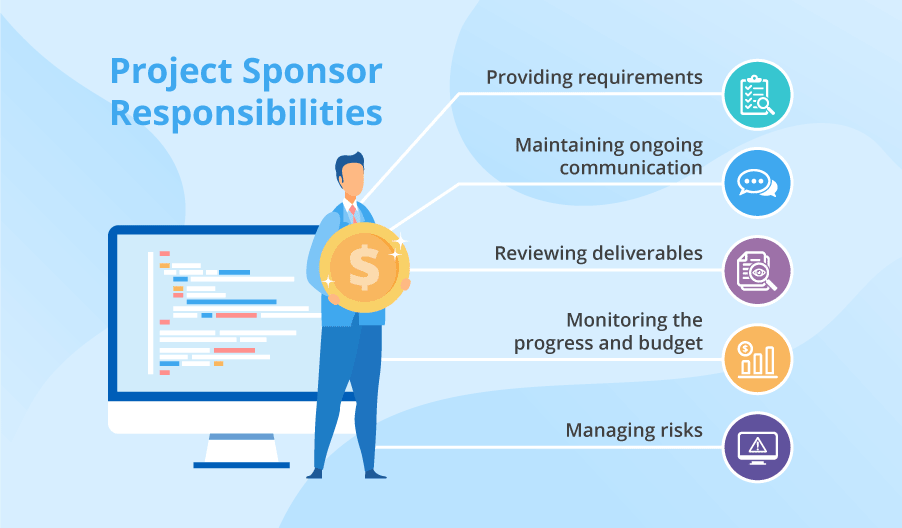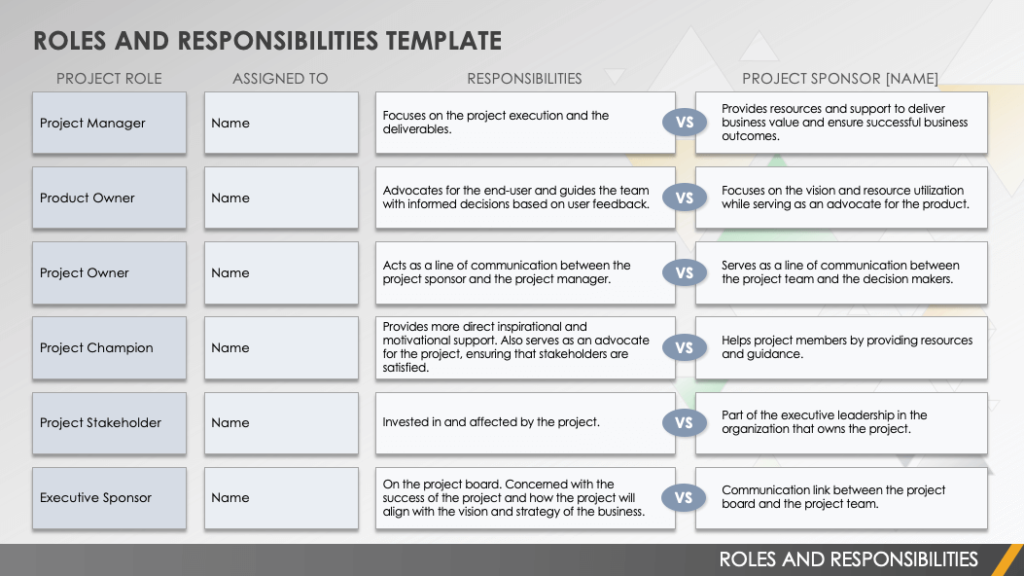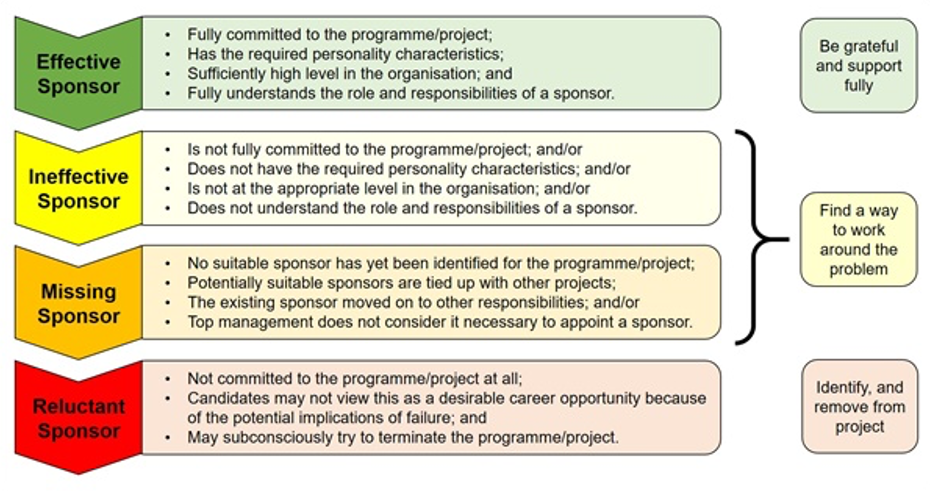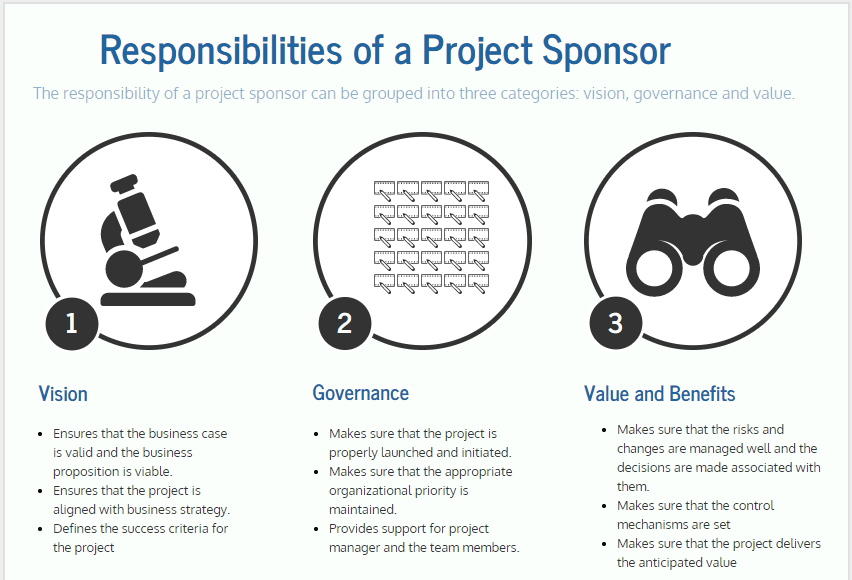
What is a Project Sponsor?
What is a Project Sponsor
In the world of project management, the role of a project sponsor is vital to the success of any endeavour. A project sponsor serves as the champion and advocate for a project, ensuring its alignment with the organisation’s goals and objectives. They provide the necessary resources, support, and guidance to steer the project in the right direction. With their expertise and leadership, a project sponsor plays a crucial role in driving the project’s success and ensuring it meets its intended outcomes. Understanding the responsibilities and impact of a project sponsor is key to effective project management. So, let’s delve into the world of project sponsorship and explore its significance in the realm of change and transformation initiatives.
Speak to MCTC today about our consultancy advice and training packages.
Understanding the Role of a Project Sponsor
What is a Project Sponsor?
A project sponsor is a key individual who plays a crucial role in the successful management and execution of a project. In simple terms, the project sponsor is the person who champions the project, provides the necessary resources, and ensures that the project aligns with the organisation’s strategic goals and objectives. They act as a bridge between the project team, the organisation’s leadership, and other stakeholders, making sure that everyone is on the same page and the project progresses smoothly.
The Importance of a Project Sponsor
The role of a project sponsor is of utmost importance in the project management landscape. They are the ultimate owners and drivers of a project, ensuring its success and helping to achieve the desired outcomes. The project sponsor provides the necessary support, both in terms of resources and guidance, to the project team. Their involvement helps to establish a clear project vision and direction, and they are responsible for making critical decisions and resolving any conflicts that may arise during the course of the project.

Key Responsibilities of a Project Sponsor
A project sponsor has several key responsibilities that are crucial to the success of a project. First and foremost, they are responsible for defining the project’s objectives and ensuring that they align with the organisation’s overall strategic goals. They also play a vital role in securing the necessary resources and budget for the project, as well as managing and mitigating any risks that may arise.
Additionally, a project sponsor is responsible for providing guidance and support to the project team, setting clear expectations, and monitoring the progress of the project. They act as a liaison between the project team, the organisation’s leadership, and other stakeholders, keeping everyone informed and engaged throughout the project life cycle. Lastly, the project sponsor is responsible for ensuring that the project delivers the intended benefits and value to the organisation.
Qualities of a Good Project Sponsor
To be an effective project sponsor, certain qualities are essential. First and foremost, a good project sponsor should have a clear understanding of the project’s objectives and why it is important for the organisation. They should be able to communicate the project’s vision and goals effectively to the project team and other stakeholders.
A good project sponsor should also possess strong leadership skills and be able to motivate and inspire the project team. They should be supportive, accessible, and approachable, fostering an environment of collaboration and open communication.
Furthermore, a good project sponsor should have a deep understanding of project management principles and methodologies. They should be able to provide guidance and advice to the project manager and team members, while also recognising when to delegate and empower others to make decisions.

Benefits of Having a Project Sponsor
Having a project sponsor brings numerous benefits to a project. One of the primary benefits is increased accountability and alignment with the organisation’s strategic objectives. With a project sponsor in place, there is a clear ownership and responsibility for the project’s success, and this accountability drives the project team to deliver their best work.
Another benefit is the enhanced visibility and support that a project sponsor provides. They have the authority and influence to secure the necessary resources and support from senior management. This ensures that the project team has the tools and resources they need to carry out their work effectively.
A project sponsor also helps to navigate risks and challenges that may arise during the project. Their experience and expertise allow them to identify potential roadblocks and develop strategies to overcome them, minimising any disruptions to the project timeline and deliverables.
The Project Sponsor vs. Project Manager
While the roles of a project sponsor and project manager may seem similar, they have distinct differences. The project sponsor is responsible for the overall success of the project and represents the interests of the organisation. They provide strategic direction, secure resources, and make critical decisions to ensure that the project aligns with the organisation’s goals.
On the other hand, the project manager is responsible for the day-to-day management and execution of the project. They are accountable for meeting project objectives, managing the project team, and implementing the project plan. The project manager is primarily focused on the operational aspects of the project and works closely with the project sponsor to ensure its successful delivery.

Project Sponsorship vs. Stakeholder Engagement
It is important to distinguish between project sponsorship and stakeholder engagement. While project sponsorship refers specifically to the role of the project sponsor, stakeholder engagement refers to the broader process of identifying and involving all stakeholders throughout the project.
Project sponsorship focuses on the leadership and ownership of the project, ensuring its success and alignment with the organisation’s goals. Stakeholder engagement, on the other hand, involves identifying all individuals and groups that may have an interest or impact on the project and actively involving them in decision-making and communication.
Both project sponsorship and stakeholder engagement are crucial for project success. The project sponsor provides the overall direction and support, while stakeholder engagement ensures that all relevant stakeholders are involved, their needs are considered, and their expectations are managed.
How to Select a Project Sponsor
Selecting a project sponsor is a critical decision that requires careful consideration. The project sponsor should be someone with the authority, influence, and knowledge to champion the project and drive it forward. They should have a deep understanding of the organisation’s strategic goals and be able to align the project with those goals.
When selecting a project sponsor, it is important to consider their availability and willingness to dedicate time and resources to the project. They should be able to commit to the project’s duration and be actively involved throughout its life cycle. It is also important to assess their leadership and communication skills, as well as their experience in project management.
In some cases, the project manager may have input in the selection of a project sponsor. This ensures that there is a good fit between the project manager and the project sponsor, fostering collaboration and effective communication between the two roles.

Project Sponsorship in Different Project Management Approaches
Project sponsorship is a vital component in various project management approaches, including traditional project management, programme management, and agile project management.
In traditional project management, the project sponsor provides strategic direction, secures resources, and ensures alignment with the organisation’s goals. They play a key role in project governance and decision-making, ensuring that the project stays on track.
In programme management, the project sponsor takes on a broader role, overseeing multiple related projects within a program. They provide strategic guidance and ensure coordination and integration among the various projects. Their involvement is essential in managing inter dependencies and delivering the intended benefits of the program.
In agile project management, the project sponsor’s role may be less formalised. However, they still play a critical role in providing overall direction and support. They help to create a culture of agility and empower the project team to make decisions quickly and effectively.
Challenges Faced by Project Sponsors
While the role of a project sponsor is crucial, it is not without its challenges. One of the primary challenges faced by project sponsors is the balancing act between strategic oversight and operational involvement. They need to strike a balance between providing guidance and support to the project team while also allowing them the autonomy to make decisions and execute their work.
Another challenge is managing conflicting priorities and interests among stakeholders. The project sponsor needs to navigate different perspectives and expectations, making sure that all stakeholders are heard and their needs are considered.
Lastly, the project sponsor may also face challenges in securing the necessary resources and support from senior management. They need to advocate for the project and effectively communicate its value and benefits to gain the necessary buy-in and commitment.
In conclusion, the role of a project sponsor is critical for the success of any project. They provide strategic guidance, secure necessary resources, and ensure alignment with the organisation’s goals. A good project sponsor possesses strong leadership skills, clear communication abilities, and a deep understanding of project management principles. Having a project sponsor brings numerous benefits, including increased accountability, enhanced visibility, and effective risk management. While the project sponsor and project manager roles differ, they work closely together to ensure project success. Project sponsorship is distinct from stakeholder engagement but equally important. Selecting the right project sponsor is crucial and should involve assessing their availability, leadership skills, and alignment with organisational goals. Project sponsorship plays a vital role in different project management approaches, including traditional, program, and agile management. Despite its importance, project sponsorship comes with challenges such as balancing strategic oversight and operational involvement, managing conflicting priorities, and securing resources and support. Overall, with the right project sponsor in place, projects are positioned for success.
